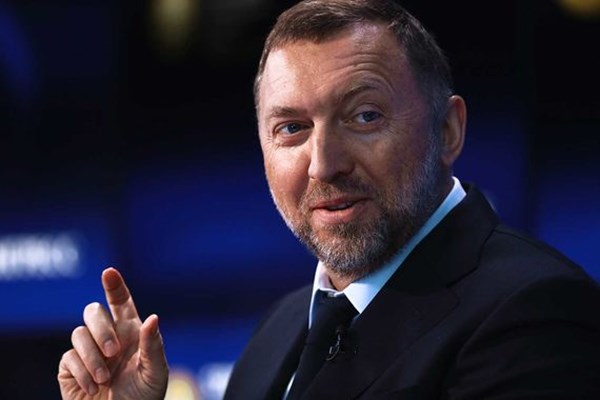Russian tycoon Deripaska: Next spring Russia will face ‘sanctions from hell’
Russia may face a sharp tightening of U.S. sanctions in the spring of 2021, according to Russian billionaire Oleg Deripaska.
If Donald Trump loses the election and Democrats, led by 77-year-old Joe Biden, come to power in Washington, "all previous sanctions will seem like a walk in the park to us," Deripaska, who has been on the U.S. Treasury Department's blacklist since 2018, told BFM radio.
According to the businessman, the so-called "sanctions from hell" - a package of tough measures against banks, the national debt and the Russian Central Bank, which was introduced twice in Congress and which has been voted down over and over again in the Republican-controlled Senate - will be introduced in the spring.
The DASKA (S.482, Defending American Security from Kremlin Aggression Act of 2019), which Republican Lindsey Graham and Democrat Bob Menendez called "sanctions from hell," calls for banning foreign investors from investing in Russian government debt. Moreover, unlike the existing sanctions, not only new issues of foreign exchange securities, but also ruble debt and secondary market should fall under the restrictions.
Sanctions, according to the bill, should hit the Bank of Russia, which, similar to Sberbank, VTB, Gazprombank and Rosselkhozbank, will be prohibited from attracting Western loans for more than 14 days.
The DASKA law provides for further tightening of the sanctions regime for the Russian banking system. Russian banks must be blacklisted for providing "financial or other support for Russian government interference in democratic elections" abroad. Their assets must be frozen in the United States and they must be banned from conducting any transactions.
De facto, this means disconnecting Russian banks from the ability to make settlements in dollars for which the bank needs to have a U.S. account. In addition, it is proposed to introduce restrictions against the Russian shipbuilding industry and the IT sector.
"These promised "sanctions from hell" are likely to be imposed in March and April. Therefore, the situation is quite alarming. We don't have much time," Deripaska warns, adding that it's time to "draw conclusions" from five years of sanctions.
"This is actually a well-prepared economic war, which is being carried out purposefully. We lose in it, if we call it economic sovereignty. Even in the last two years, since 2018, when specific sanctions against the energy sector were imposed, against a number of companies, we have done nothing," the businessman laments.
Russia has not created a government body to counter sanctions, Deripaska says: "So they [the West] have bodies that impose sanctions, monitor their execution, their toughness, the pain they cause, with their special services and all other organizations. And we don't have a single unit that is engaged in an organized struggle."
The situation in the Russian economy, according to the billionaire, is "obviously difficult." The internal crisis has been going on for six years, and the prerequisites for positive changes are not visible: 60% of the population earn less than 5,000 euros a year - three times less than the residents of Poland, and the announced plans to achieve economic growth by 2.5% - is nothing more than the preservation of the current state of the economy.
At the same time, Deripaska believes that Russia has a "good government" consisting of "literate people" and the president set "clear priorities". But without financial support the economic development plan "will lead to only a modest result."
So far, the industrial development fund is 30 billion rubles, while the creation of only a component base for mechanical engineering needs several trillion. The Russian Central Bank should provide financial resources for the economy, creating new capital, distributing it within the economy, the billionaire believes.
An example for the Russian Central Bank, in his opinion, could be the U.S. Federal Reserve and the trillions it injected into the market, which did not change the balance in the U.S. economy, but allowed to implement many programs and provided a fairly quick way out of the crisis.
